Search the Special Collections and Archives Portal
Search Results
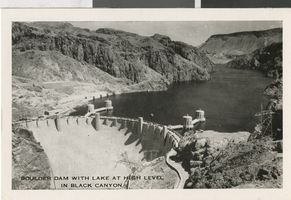
Hoover Dam Postcards, Image 010
Date
1931
Description
Boulder Dam with lake at high level in Black Canyon
Image
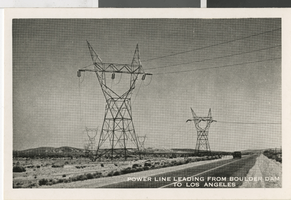
Hoover Dam Postcards, Image 012
Date
1931
Description
Power line leading from Boulder Dam to Los Angeles.
Image
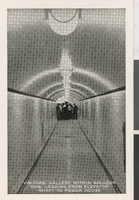
Hoover Dam Postcards, Image 013
Date
1931
Description
Visiting gallery with Boulder Dam. Leading from elevator shaft to power house.
Image
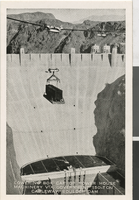
Hoover Dam Postcards, Image 014
Date
1931
Description
Lowering box car of power house machinery via govenment 150-ton cableway, Boulder Dam
Image

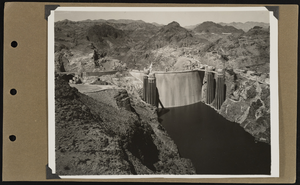
Hoover Dam album, image 011
Date
1931 to 1936
Description
Machinery for construction of Boulder Dam, 1931-1936
Image
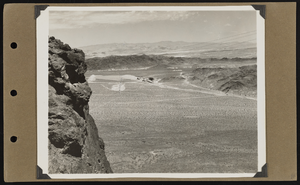
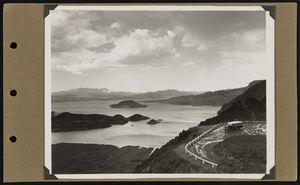
Hoover Dam album, image 013
Date
1931 to 1936
Description
View from Boulder Dam into Lake Mead, 1931-1936
Image
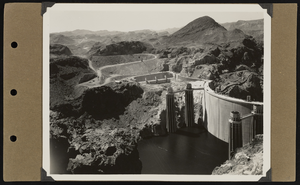
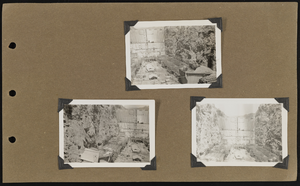
Hoover Dam album, image 015
Date
1931 to 1936
Description
Construction of Boulder Dam, 1931-1936
Image
Pagination
Refine my results
Content Type
Creator or Contributor
Subject
Archival Collection
Digital Project
Resource Type
Year
Material Type
Place
Language
Records Classification
